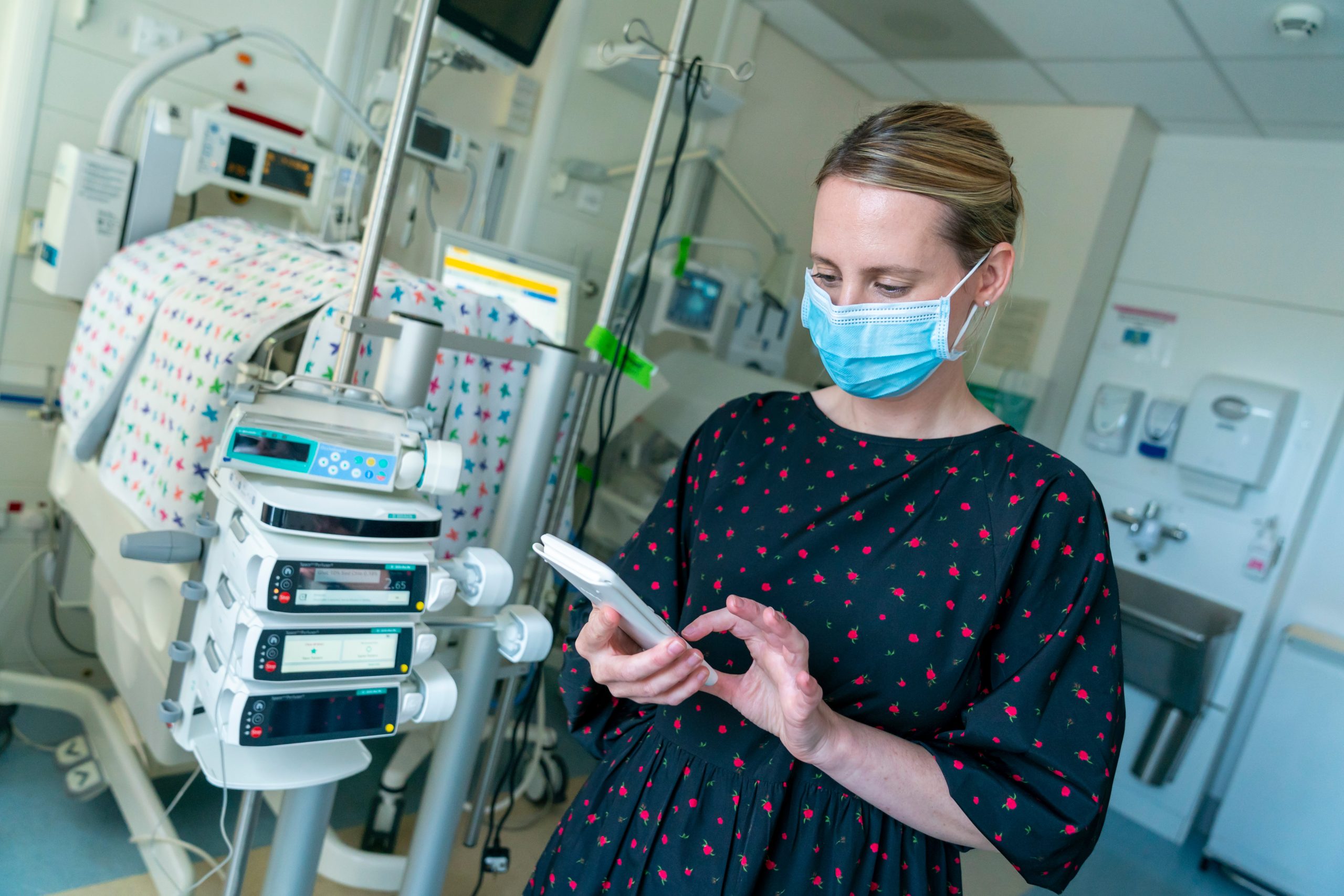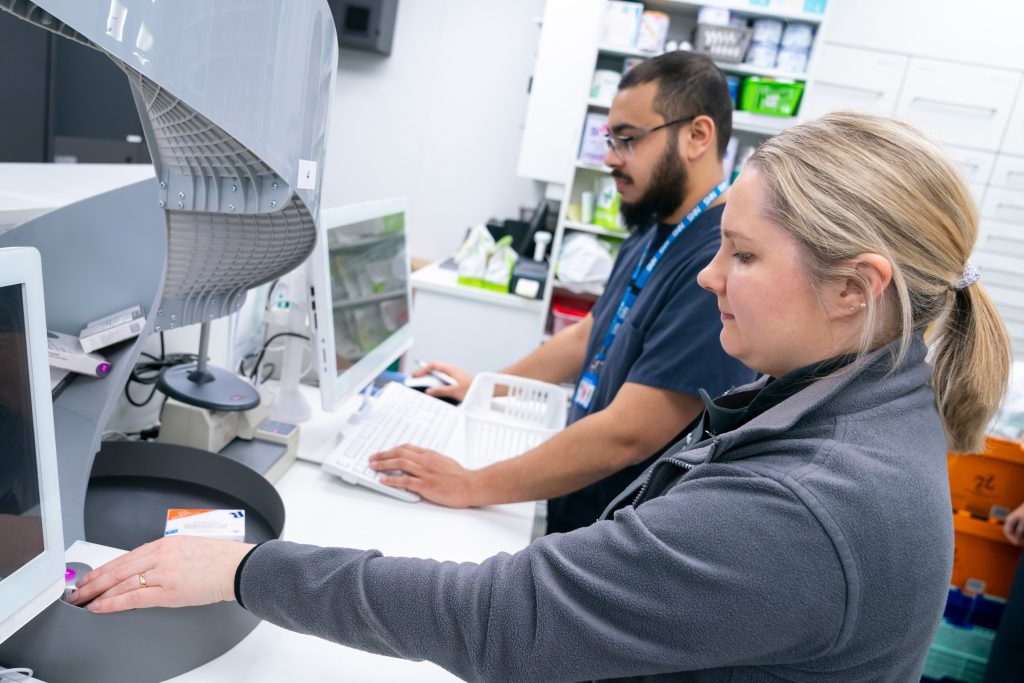
Looking for work: job vacancy sites
Are you looking for a new job? This page contains a list of specialist pharmacist sites, locum sites and more general job sites.

This webpage contains information about finding a summer placement and working whilst you are studying.
Placements are a mandatory part of the MPharm degree. Placements give you the opportunity to gain experience in a variety of pharmacy settings. You will rotate through a variety of healthcare settings to gain a well-rounded understanding of the profession. These typically include community pharmacy, hospital, primary care, prison and third sector organisations.
You will be expected to travel to placements and may be able to claim some expenses from the Travel and Dual Accommodation Expenses scheme (TDAE). You can find out more about the TDAE scheme here.
To attend placements, you will need an Enhanced DBS check and you will need to complete an annual self-declaration of good health and conduct, in addition to adhering to placement provider policies, including dress codes.
You may also want to look for additional placements during the summer break to add to your overall levels of experience.
Most summer placements are advertised very early in the year, and priority is often given to third-year students. Do not get too disheartened if you do not get a placement within a pharmaceutical environment. Any work experience you gain during your studies will enhance your CV and give you valuable life skills. It will also give you an understanding of working life — for example, the satisfaction of contributing to a team, developing confidence, and building professional relationships. You may also gain the insight that not every day is a good one; work can be very hard, and you will sometimes feel very tired at the end of the day. However, overcoming these challenges can contribute a great deal to building your resilience as a pharmacist, while also learning when to prioritise your wellbeing to avoid burnout.
Double-check with your student union — they often have good contacts, details of possible vacancies, or may even be looking to fill part-time positions within the union.
Most hospitals offer unpaid work experience between June and August each year to MPharm students. Summer internships are not essential in order to apply for hospital pharmacy foundation pharmacist training.
Paid employment is not always available; however, community pharmacies are frequently willing to accept students as volunteers. Some of the larger retailers also offer summer placements for first and second year students. Some of the larger chains now recruit some or all of their foundation trainees from people who have participated in their summer placement scheme. Lists of community pharmacies in a preferred area are available on the NHS website and from your Local Pharmaceutical Committee (LPC) website.
Students who are interested in a split industrial foundation placement will need to be aware that some companies only allow those who have completed a summer placement to apply for a foundation training position. Many of the industrial foundation placements are offered a full year in advance of commencement. See below for contact details for industrial opportunities.
AstraZeneca offer summer placements at their Macclesfield and Alderley Park Sites. During this placement, students will be offered the chance to apply for one of their foundation training placements. For further details, visit their website.
GlaxoSmithKline (GSK) offer summer internships and industrial placements. For further information, visit their website.
MSD offer summer placements and graduate opportunities. For further information, visit their website.
Pfizer offer an industrial trainee placement scheme, for further details, visit their website.
Students should bear in mind that often the relevant information will only be available on company websites whilst applications for positions are open. University careers support services should have further information available for students.
Check out our job vacancy sites webpage

Completing a summer placement in a pharmacy gives you a good idea of what to expect if you become a fully-qualified pharmacist
This webpage contains information about finding a summer placement and working whilst you are studying.
Most students take on part-time employment to cover their expenses and at the same time gain valuable skills that can be used in the future. Most jobs in the retail industry offer flexible work shifts so students are able to revolve their work around their course. In addition to the usual sources, your university may provide information and contacts for potential employers. Here is some important information on working whilst studying.
As an employee, you will have employment rights, for example, the right to be paid the minimum wage, right to holiday pay, right to protection from discrimination. It is useful to know your rights to ensure fair treatment at work. If you are faced with issues at work and are unsure of your rights, it can be important to seek employment advice.
It is a good idea to have a think about joining a trade union. They can offer support and advice on employment rights. Membership of the PDA is free to all students and trainees. They can also offer advice on fitness to practise issues and provide a study package for students. For further information, see the PDA website.
Students who work will be liable to pay income tax and NI on any income above the government threshold. Employers will deduct the income tax and NI contributions from your wages via the PAYE (pay as you earn) system. Students who only work during the holidays and are returning to full-time education after the holiday, may not need to pay tax through PAYE if their wages for the year are below the personal income tax allowance. They will, however, still have to pay NI. Paying NI contributions is important as without these contributions certain benefits, such as contributions based job seekers allowance and statutory sick pay, cannot be claimed. For further information on paying tax as a student, see the government website. Students who have paid too much tax over the year may be entitled to a refund. The HMRC website has a tax checker where you can check if you have paid too much tax and there is also information on how to claim the tax back.
Ideally, students should write a CV in the first year of their studies and then update it regularly to reflect new experiences. It is best to use a simple, clear format that is easy for prospective employers to read. CVs should reflect all of your skills, abilities and experience, including that not directly relevant to pharmacy. Good interpersonal and communication skills are also important. All universities have a careers advisory service and students can contact them for assistance with CVs. The Student Room has lots of suggestions about what to include in your CV.
Most people feel nervous before a job interview. A little advance preparation can make all the difference. Find out where you are going in advance and ensure you know how to get there and how long the journey is likely to take. Prepare answers for questions that will almost always come up at interviews, for example, what are your main strengths/weaknesses, why are you interested in the role and what can you bring to the role. Be prepared to give examples of situations that have required you to use your skills. It is not enough to say where you have worked, prospective employers will want to know how you handled work place scenarios and what you learnt from them.
Find out more about building relationships in the workplace
This webpage was last reviewed and updated in November 2025.

Are you looking for a new job? This page contains a list of specialist pharmacist sites, locum sites and more general job sites.

Working in a pharmacy setting can be stressful. This page provides useful guidance and advice on looking after your wellbeing in the workplace.

A brief guide for pharmacy students and trainee pharmacist applicants who would like to apply for a foundation training placement in England, Scotland or Wales using Oriel.